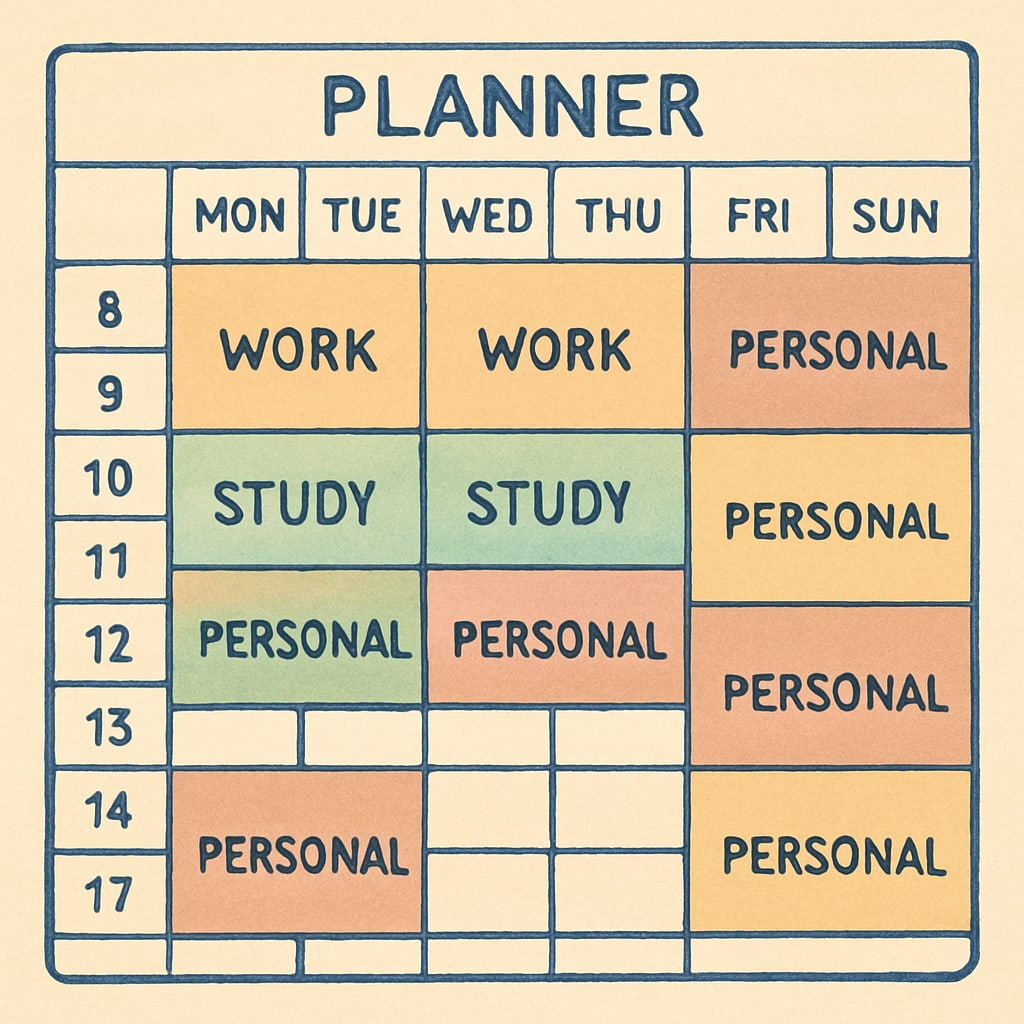For professionals in their 30s, pursuing a master’s degree comes with a unique set of challenges. Balancing academic goals, career growth, and personal responsibilities requires exceptional time management skills. The demands of work and study can often feel overwhelming, but with the right strategies, it is possible to achieve success in both arenas without sacrificing your professional trajectory.
The Challenges of Managing Work and Study
One of the most significant obstacles for individuals pursuing a master’s degree while working is the lack of time. Balancing a full-time job with demanding academic workloads can lead to stress and burnout. For example, many professionals struggle to find time for research, assignments, and exams while meeting deadlines at work. Additionally, personal commitments, such as family responsibilities, can further complicate this balancing act.

Another challenge is maintaining focus and energy. Working professionals in their 30s often find themselves stretched thin, leaving little room for rest or leisure. This can negatively impact performance, both academically and professionally, if not managed effectively.
Strategies for Balancing Work and Academic Pursuits
Despite the challenges, there are several practical strategies that can help professionals balance their responsibilities:
- Set Clear Priorities: Define your academic and professional goals and prioritize tasks accordingly. For example, allocate specific time blocks for work, study, and personal activities.
- Leverage Technology: Use productivity tools like calendar apps or project management software to organize deadlines and daily schedules.
- Communicate Effectively: Inform your employer, colleagues, and family members about your academic commitments. This can help create a supportive environment.
- Focus on Time Management: Break larger tasks into manageable chunks and set realistic timelines, ensuring that both work and study requirements are met.

The Long-Term Benefits of Pursuing a Master’s Degree
While the journey may be demanding, obtaining a master’s degree offers immense long-term benefits. It can open doors to advanced career opportunities, increase earning potential, and provide specialized knowledge in your field. Moreover, it demonstrates your commitment to personal and professional development, which can be a valuable asset in competitive industries.
According to Britannica’s overview of education, higher education not only enhances individual skills but also contributes to broader societal growth. Similarly, Wikipedia’s description of master’s degrees highlights their role in advancing academic expertise and career competitiveness.
Conclusion: Achieving Balance and Success
Pursuing a master’s degree while managing a career at 30 is undoubtedly challenging, but it is also highly rewarding. With effective time management, clear communication, and supportive strategies, professionals can achieve their academic goals without compromising their professional growth. Remember, the key lies in maintaining balance, setting priorities, and staying focused on the bigger picture.
Readability guidance: Use short paragraphs and lists to summarize key points. Incorporate transition words like “however” and “in addition” to ensure smooth flow. Manage sentence complexity and minimize passive voice for better clarity.


